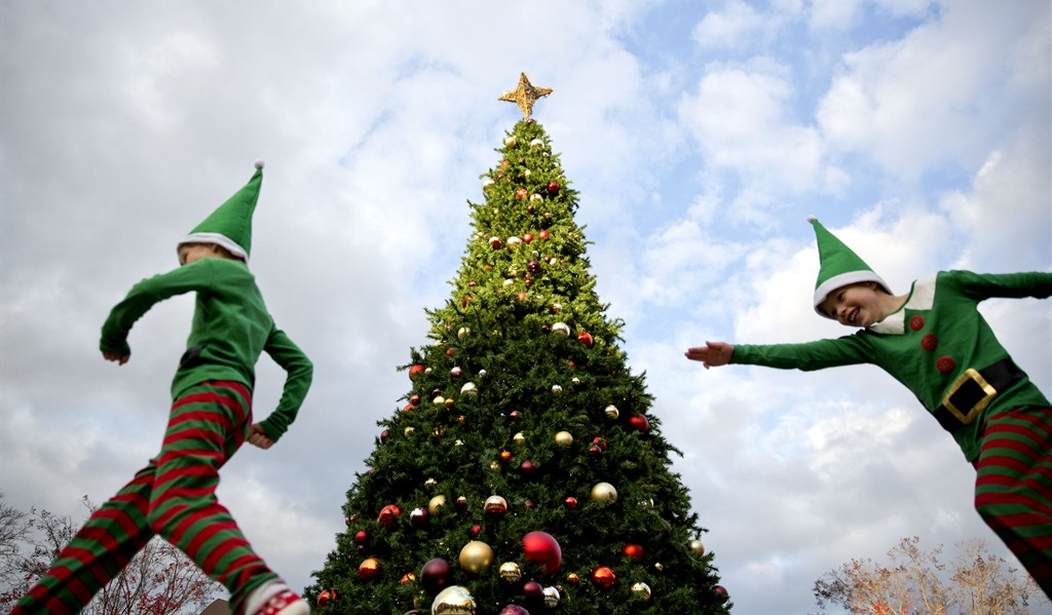I once heard then-U.S. Rep. and now-Gov. Mike Pence, R-Ind., say something that I quite liked: "I'm a Christian, an American, a conservative and a Republican - in that order." It quite nicely sums up how I feel.
Even if you are liberal, you can substitute liberal and Democrat in and be fine.
Every year around this time, we hear stories about a "War on Christmas." I am not going to defend and personally guarantee every "War on Christmas" story that someone, somewhere has publicized. But we do know that public schools have banned celebrations or mentions of Christmas. Many companies and public institutions formally encourage individuals to say "Happy Holidays" instead of "Merry Christmas." In 2005 Lowe's began labeling their Christmas trees as "holiday trees."
In many cases, efforts to prevent Americans from publicly celebrating Christmas are dealt with before legal action occurs.
In two specific Texas cases, legal action has occurred:
- In Plano in 2003, three elementary school children became victims of religious viewpoint discrimination in Morgan v. Swanson, what is now referred to as the "Candy Cane" case. These young students brought holiday goodie bags with candy canes that had religious messages on them and they were threatened by school officials. That case is ongoing although an initial victory has been won by the "pro Christmas" faction over the school district for infringing on the constitutional rights of the three students.
Recommended
- A federal judge found the Katy school district had "unlawfully discriminated" against students in a variety of ways related to celebrating Christmas.
- A Frisco school district PTA email before Thanksgiving outlined a list of "Winter Party Rules" banning any references to Christmas or any other religious holiday. The email even banned the colors "red and green" and outlawed Christmas trees at school parties. Thankfully, State Rep. Pat Fallon, R-Frisco, fought these rules and the issue appears to have been satisfactorily resolved. For a time, it appeared that First Amendment Rights in America did not exist in the Frisco district.
The silent majority of America is Christian. I would guess 90 percent of Americans celebrate Christmas (or other traditional winter holidays) in some form or fashion. An individual or family can decide on their own if the Christmas season should be celebrated with a religious element to it - most people do, but in America you have that Constitutional right to choose for yourself.
In my Catholic family, we have always celebrated Christmas as a religious holiday, with midnight Mass, with prayer, with family traditions that have continued through the generations, but also with the Christian virtues of gratitude, charity and humility.
Who could be against these things?The honest answer is the mainstream media, the Left and the atheist/agnostic movement.
Why?
Christianity threatens government.
In the liberal mind, government should be all powerful. Christianity, to Christians, stands above government. Apart from it. Uninfringed by it.
This is a threat.
Christianity threatens liberalism because Christianity preaches self-restraint, personal responsibility, morality. Christians are not perfect - we are all sinners. But we strive for perfection.
Who could be against that?
One of the finest traditions in America is Christmas.
While small children may occasionally get caught up in the materialism of the season, they will quickly learn that giving a gift brings you more happiness than receiving one. That virtue, in and of itself, has tremendous, life-changing power and impacts our society positively every single day.
If a public institution, say a city or a public school, bans Christmas traditions in the name of political correctness, Christians and Americans should stand up and say no.
In Texas, the Legislature passed, and the governor signed, HB 308, the Merry Christmas Law, a bill that protects Christmas in our public institutions by "allowing parents, teachers, students and school administrators" to celebrate Christmas in public schools "without fear of censorship, litigation, or persecution." An outstanding Texas nonprofit, Texas Values, has done excellent work in this area and recently launched MerryChristmasTexas.com to help educate Texas about their rights under the law.
Let's not complicate things unnecessarily. Christmas is a good thing. It should be celebrated, by those who wish to do so. It should certainly be allowed as the Constitution unquestionably protects free speech and freedom of religion.
In that spirit, as a Christian and an American, I would like to wish you a wonderful and Merry Christmas and a happy holiday season.

























Join the conversation as a VIP Member